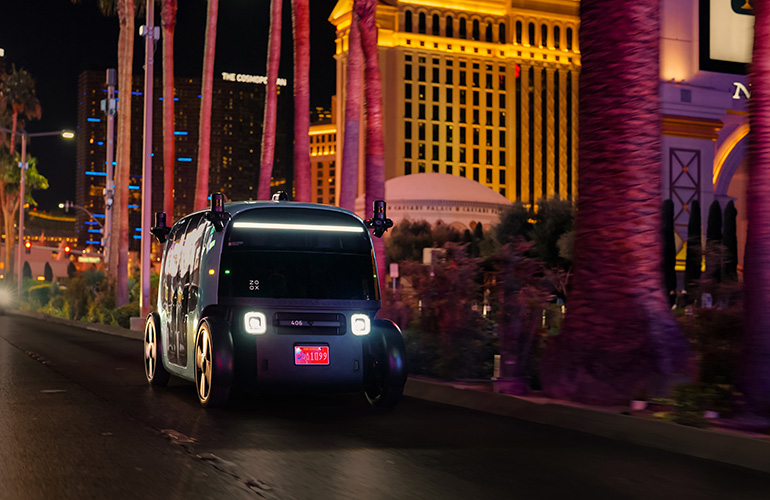The recalled software is no longer in use, and no Zoox vehicles on the road operate with this software today.
The post Zoox issues voluntary software recall for 258 vehicles appeared first on The Robot Report.
Zoox Inc. last week filed a Part 573 Safety Recall Report with the National Highway Traffic Safety Administration, or NHTSA. The company issued this voluntary safety recall in response to two incidents in which its vehicles braked unexpectedly and were rear-ended by motorcycles.
In both of these instances, the Zoox vehicles involved were the company’s retrofitted test vehicles. These always drive with safety drivers. Despite this, the software recall does apply to some of the company’s purpose-built robotaxis, which were equipped with similar software.
No Zoox vehicles on the road use the recalled software today.
“Zoox proactively took action to evaluate the root cause of the incidents and implemented mitigating measures to prevent recurrence,” said the company. “These measures included updating the software on our retrofitted test fleet, operational mitigations for our robotaxis, and increased awareness training for our safety drivers and our TeleGuidance operators.”
These incidents were the subject of an NHTSA Preliminary Evaluation that opened in May of 2024. Zoox said it proactively took action to evaluate the root cause of the incidents and implemented mitigating measures to prevent recurrence.
These measures included updating the software on the company’s retrofitted test fleet, operational mitigations for its robotaxis, and increased awareness training for its safety drivers and TeleGuidance operators.
The Foster City, Calif.-based Amazon subsidiary is testing its purpose-built robotaxis, with no steering wheel or brakes, in San Francisco, Las Vegas, and Foster City. During the testing phase, its vehicles are open to Zoox employees so the company can refine the riding experience. It has further plans to test in Austin and Miami in the coming years.

Register now so you don’t miss out!
Zoox not the only AVs with ‘phantom braking’ problem
Zoox isn’t the first autonomous vehicle (AV) developer to struggle with “phantom braking,” or braking for seemingly no reason at unexpected times. A study from the Delft University of Technology in the Netherlands found that this problem can be a result of automated decision-making. This is typically caused by the vehicle’s sensors or algorithms misinterpreting the situation.
Tesla‘s AVs have struggled with this issue in recent years. In November 2024, a U.S. federal judge denied a request to throw out a class-action lawsuit from Tesla owners about phantom braking. The judge said Tesla must face parts of the lawsuit alleging that its Autopilot system causes cars to brake unexpectedly.
Additionally, in February, a German court ruled that the Autopilot system on Tesla’s Model 3 vehicles is “defective” and is not “suitable for normal use” due to phantom braking. The Higher Regional Court in Munich is now handling the case.
In the robotaxi world, Waymo stands out as a clear leader. The company provides over 200,000 paid trips per week across its deployments in San Francisco, Phoenix, Los Angeles, and Austin. The company also plans to bring its services to Atlanta and Miami. Today, it announced plans to expand operations to Washington, D.C., in 2026.
The post Zoox issues voluntary software recall for 258 vehicles appeared first on The Robot Report.



